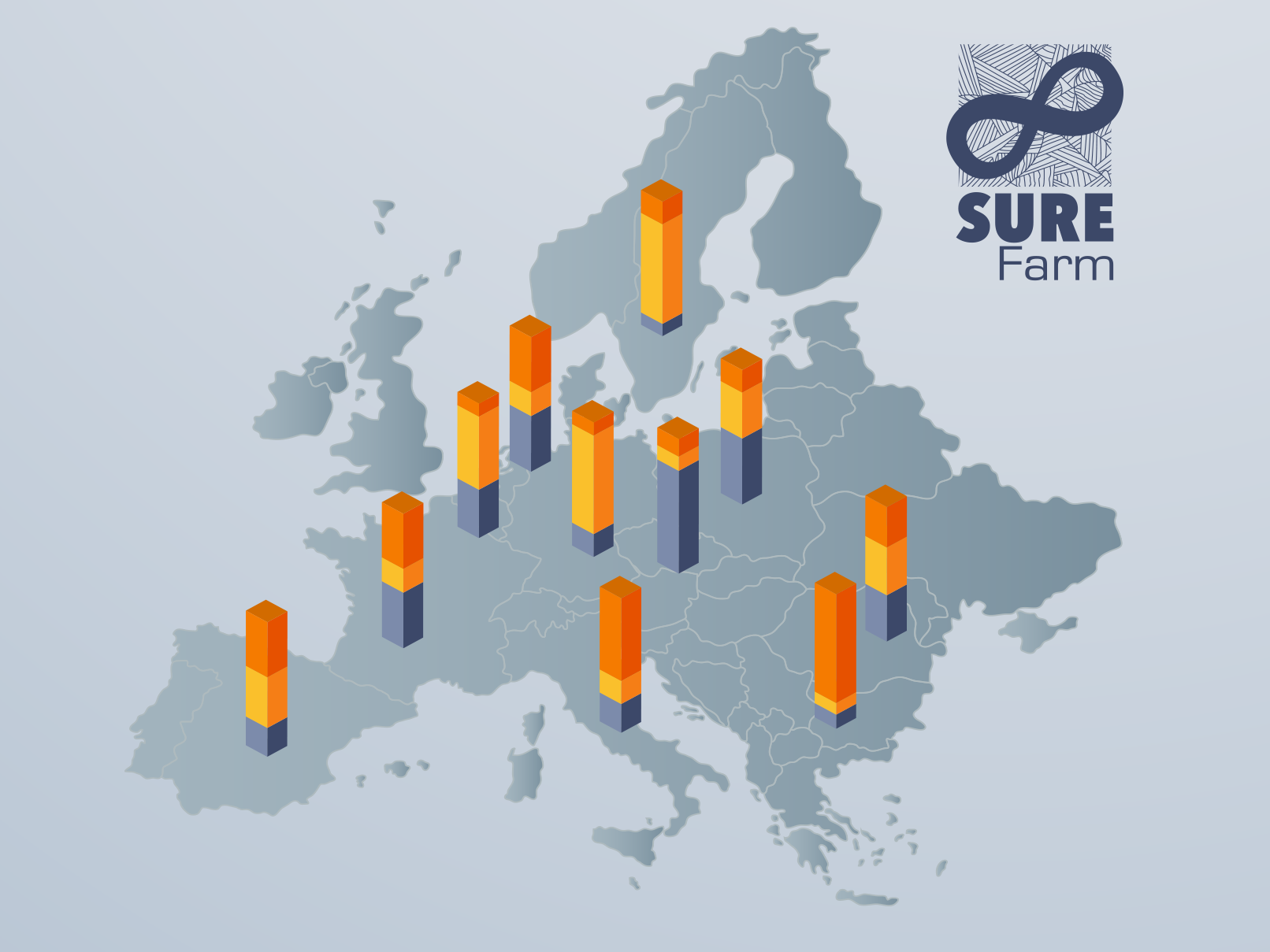Critical analysis of how current policies constrain/enable resilient European agriculture and recommendations for the CAP post-2020 reform
Under the impression of the Covid-19 crisis, resilience has become a major concern for policy making globally and in the European Union. A farming system is resilient if it is able to maintain its essential functions in the face of increasingly complex and volatile challenges. Resilience comprises three different capacities, which need to be activated depending on different conditions: robustness, adaptability and transformability. Public policies affect the resilience of farming systems in manifold and significant ways. First, they can moderate or reinforce pressure to change, e.g. through lax or tight regulations, closing down or opening up policy networks, and influencing public and professional debates. Second, they can enhance or constrain the capability of farming systems to deal with challenges, by providing a false sense of security, by encouraging investments in systems with little long-term viability, or through erratic decision-making guided by short-term news cycles. However, support for the three resilience capacities requires different policies, with possible tensions and competition for budget and priorities. Results from the SURE-Farm project show that there is significant evidence that the current CAP is neither effective nor efficient in supporting the resilience of Europe’s farming systems. The national implementations of the CAP are focused on enhancing the robustness of farms and farming systems, with uneven effects. Most financial resources go into payments that provide buffer resources for farms and enable the continuation of otherwise less profitable business models. Furthermore, government-supported risk management schemes (e.g. weather insurance), where they are offered, often struggle with effectiveness and acceptance by the target groups. Much fewer resources are devoted to programs that enhance adaptability, mostly through rural development programs and sometimes producer organisations. Support for transformability is generally underdeveloped. Policies articulate long-term goals in often rather generic terms without providing a clear vision, there is generally little support for deep learning or radical innovation and hesitation to dismantle incentives to maintain the status quo. These findings lead to the clear conclusion that the CAP needs to change significantly to improve the resilience of Europe’s farming systems. On this basis, the following key points for the future CAP are recommended: i) Reduce direct payments with a view to phasing out by 2028, and divert the budget into those CAP measures that specifically address resilience needs; ii) Use the eco-schemes to foster the provision of public services and adaptation to new environmental challenges and climate change; iii) Ensure that Member States’ national strategic plans provide sufficient support for farming systems to adapt to environmental challenges and climate change through a suitable combination of eco-schemes and agro-environmental programmes in line with the ambitions of the Green Deal, the Farm-to-Fork Strategy and the Biodiversity Strategy; iv) Ensure that Member States provide ample support for cooperation and cross-sectoral networking in rural development programmes; v) Enable producer organisations to coordinate adaptation to shifting markets and changing environments; vi) Strengthen the Agricultural Knowledge and Innovation Systems through more project-type funding, more funding for advisory services to integrate advice for production and provision of public goods; vii) Enable transformative innovation, reflexivity, deep learning through more support for LEADER and EIP-Agri; viii) Create European networks of EIP-Agri around key challenges; ix) Replace the young farmers’ premium with support for start-ups in rural areas; x) Provide support for fast internet in rural areas as a precondition for connectivity.



